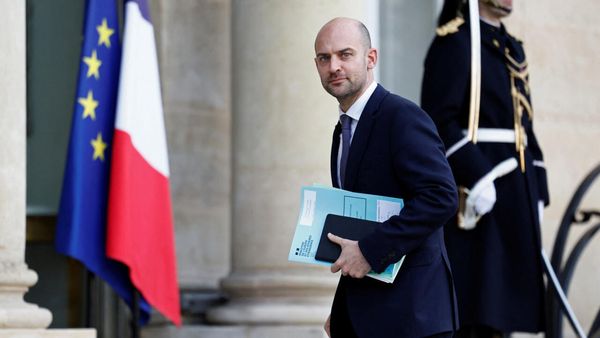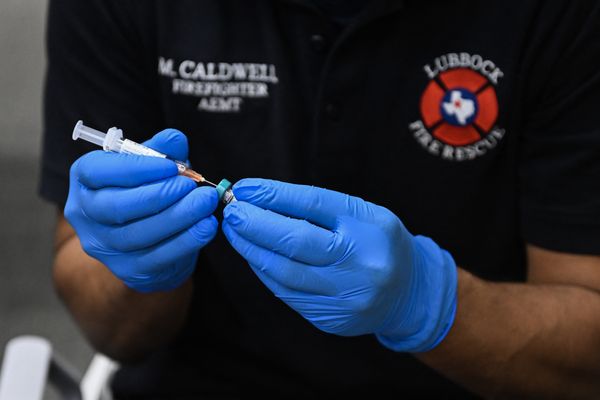
Israeli defence giant Elbit Systems, a one-time computer company founded in the 1960s that is now Israel’s biggest defence manufacturer, is a company bathed in Palestinian blood.
Its widely used Hermes series of drones are a mainstay of the Israeli Defense Forces (IDF) and have inflicted large numbers of civilian casualties in Israel’s onslaught on Gaza — casualties Israel insists are all Hamas’ fault. It was an Elbit Hermes drone that was used by the IDF to murder Australian aid worker Zomi Frankcom and six of her colleagues in a deliberate attack on an aid convoy. The drones are now being deployed against the Lebanese and have been used by the IDF against Gazans in previous assaults on Gaza. It has produced a new-generation miniature drone designed to kill targets in “tight urban environments”. It manufactures the Iron Sting laser-guided mortar, hyped as a “game-changer” in the conflict.
It has received contracts for hundreds of millions of dollars worth of ammunition from the IDF this year. Elbit, which likes to claim its products are “battle proven” (which in effect means “tested on Palestinians”), has also developed systems to use remotely operated armoured personnel carriers that have been deployed in Gaza, including as “vehicle-borne improvised explosive device suicide bombers”. Its “combat-proven” MPR-500 bomb has been linked with the killing of Palestinian civilians a decade ago.
The company also has a history of producing white phosphorous and cluster munitions, although it insists it no longer produces the latter, which saw it temporarily banned by Australia’s Future Fund in 2021. It also broke international sanctions to sell weapons to the Myanmar junta after the 2021 coup that brought it to power. Since 2009, it has been banned or divested from by the Norwegian government’s pension fund, Danske Bank, Deutsche Bank and a Swedish pension fund, AXA, HSBC and, most recently, Japan’s Itochu Corp, for its manufacture of restricted weapons or its role in Israel’s occupation and oppression of Palestinians.
Elbit’s role in providing the Australian Defence Force (ADF) with weapons began in 2007 when it began providing drone parts. Since that time, Elbit, or the Australian subsidiary it established in 2010, has received more than $1.9 billion in taxpayer funding — a flow of cash unaffected either by its human rights record or its complicity in Israel’s genocide in Gaza.
Around half of the funding Elbit has received from Australian taxpayers has been for a single project — the ADF’s Battle Management System, which remains one of the biggest mysteries in recent Australian defence procurement. The multi-stage project, which has seen a system to integrate real-time data and communications gradually rolled out across one-third of the ADF’s land forces at a time, has been ongoing since the Rudd government. Elbit, which has a strong technology and software background courtesy of its origins as an Israeli computer company, won the first tranche tender in 2010, which would, with radio equipment provided by Harris Corporation (now L3Harris), end up costing $600 million.
To the dismay of the Australian National Audit Office, the Department of Defence then decided not to invite competitive tenders for tranche two of the Battle Management System (BMS) — set to cost nearly a billion dollars over the life of the project — but work with Elbit to develop a sole tender. By then, the first tranche of Elbit’s BMS had fallen two years behind schedule and Defence concluded Elbit’s initial tranche two tender did not represent value for money and was “critically deficient and high risk”. After refining the tender — mainly by reducing the scope of the BMS system, Defence awarded Elbit the tender in 2017.
Any concerns about the value for money of the BMS Elbit was supplying, however, were overshadowed by an extraordinary development in early 2021 under the highly pro-Israel Morrison government: in April, the ADF told Elbit it was pulling the company’s software out of the BMS, immediately, despite the lack of any interim replacement, and with no explanation. No further payments to Elbit for the BMS project were recorded afterwards.
In May of that year, the ABC’s Andrew Greene reported the reason: Elbit’s software was suspected of having a security flaw that was being used to harvest data, with the Australian Signals Directorate (ASD) having spotted a back door in the software. The risk of a back door in Australian systems for Israeli spies was all the greater given the ADF uses information from its Five Eyes partners.
Elbit — which counted former Defence minister Christopher Pyne among its lobbyists — angrily denied that it posed any security risk, but Danish company Systematic last year was selected to provide a new Battle Management System. Defence has refused to ever comment on how such a critical system could be endangered by a security flaw, whether real or the result of ASD paranoia, at a cost of hundreds of millions of dollars.
That has not stopped Defence from continuing to engage Elbit in other areas: since Elbit’s software was ripped out of the ADF’s systems, the company has received more than $34 million in publicly reported contracts. Nor has Defence allowed Elbit’s role in the murder of Zomi Frankom to deter it: just last week, Elbit received another $688,000 from Australian taxpayers for drone support services. Palestinian lives don’t matter to Defence; nor, it seems, do Australian ones.
What do you think of Defence’s investments in Elbit Systems? Let us know your thoughts by writing to letters@crikey.com.au. Please include your full name to be considered for publication. We reserve the right to edit for length and clarity.







